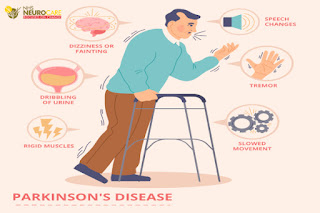Multiple Sclerosis: A serious Neurological Condition
Multiple sclerosis (MS) is a serious neurological condition that can have a profound and devastating impact on the lives of those affected by it. It is an unpredictable disease, and its symptoms can range from mild to severe. Some people with MS may experience only occasional episodes of minor symptoms, while others may be permanently disabled by the condition. There is currently no cure for MS, but there are treatments available that can help to manage its symptoms and slow down its progression. With early diagnosis and treatment, many people with MS are able to live relatively normal lives. In this blog, we will discuss this condition in detail.
What is Multiple Sclerosis?
Multiple Sclerosis (MS) is a serious neurological condition that affects the nervous system. The condition can cause a wide range of symptoms and can lead to more serious problems, such as paralysis or blindness. The different types of Multiple Sclerosis.
Relapsing-remitting MS, people who have periods of good health followed by periods of relapse, or worsening symptoms. Relapses are often followed by partial or full recovery.
Primary progressive MS is a rare type of MS. People with primary progressive MS have slowly worsening symptoms from the start and do not have periods of remission.
Secondary progressive MS is a type of MS that starts as relapsing-remitting MS and then changes to primary progressive MS. Over time, people with secondary progressive MS have increasingly longer periods of worsening symptoms and fewer periods of remission or stability.
Progressive relapsingMS is a rarer form of the disease in which people experience steadily worsening symptoms from the start, along with occasional relapses (worsening of symptoms).
What are the Symptoms of Multiple Sclerosis?
The symptoms of MS can be very different from one person to the next, and range from mild to severe. Some people with MS may only experience occasional episodes of minor symptoms, while others may develop more disabling symptoms that can significantly impact their daily lives. The common symptoms of MS include:
Fatigue
Muscle weakness
Numbness or tingling in the limbs
Difficulty with balance and coordination
Bladder and bowel problems
Sexual dysfunction
Pain
Depression
Not everyone with MS will experience all of these symptoms, and the severity of symptoms can vary greatly from one person to the next.
What are the causes of Multiple Sclerosis?
There are many possible causes of multiple sclerosis, but the exact cause is still unknown. It is thought to be an autoimmune disorder. This can be triggered by a viral infection or other environmental factors. Genetics may also play a role, as MS is more common in people with certain genes.
Treatment for Multiple Sclerosis
Multiple sclerosis is a serious neurological condition that can lead to disability. There is no cure for MS, but the present treatment options can slow down the progression by controlling the symptoms.
Two MS therapies are provided by NHS-Neurocare to aid patients in regaining as much function as possible. You'll receive the finest care possible from our knowledgeable neurologists.
Acute treatment for recently developed symptoms.
A disease-modifying treatment is one that can alter the course of the disease and reduce its development.
The goal of treatment for MS is to reduce symptoms and improve quality of life. The type of treatment will vary from person to person depending on the severity of the disease and each individual’s response to treatment.
Conclusion
Multiple sclerosis is a serious neurological condition that can have a major impact on your quality of life. While there is no cure for MS, there are treatments available that can help manage the symptoms and slow the progression of the disease. If you think you may be experiencing symptoms of MS, it's important to see a doctor so that you can get an accurate diagnosis and start treatment as soon as possible.



Comments
Post a Comment